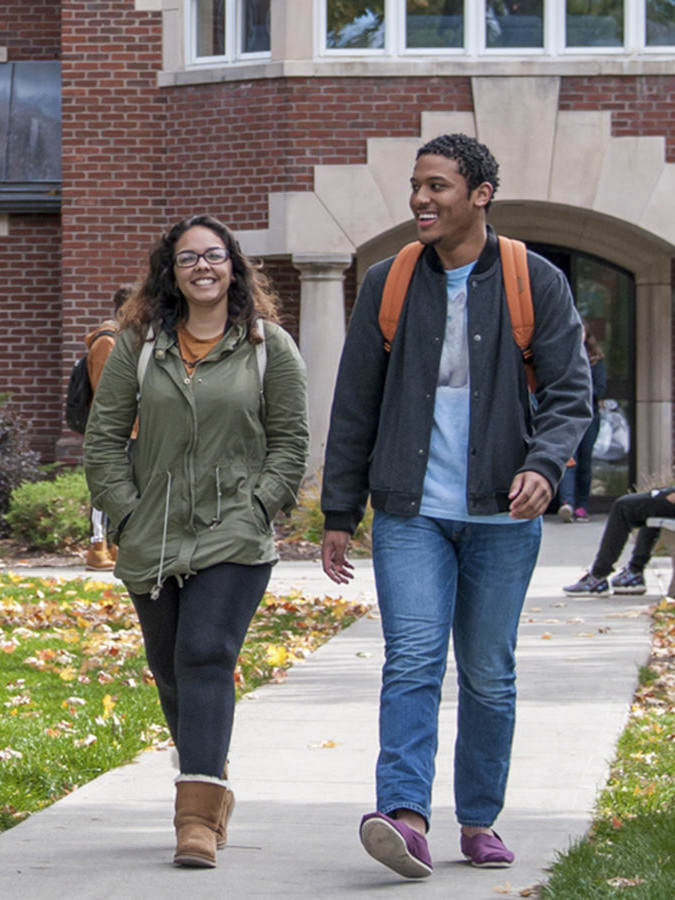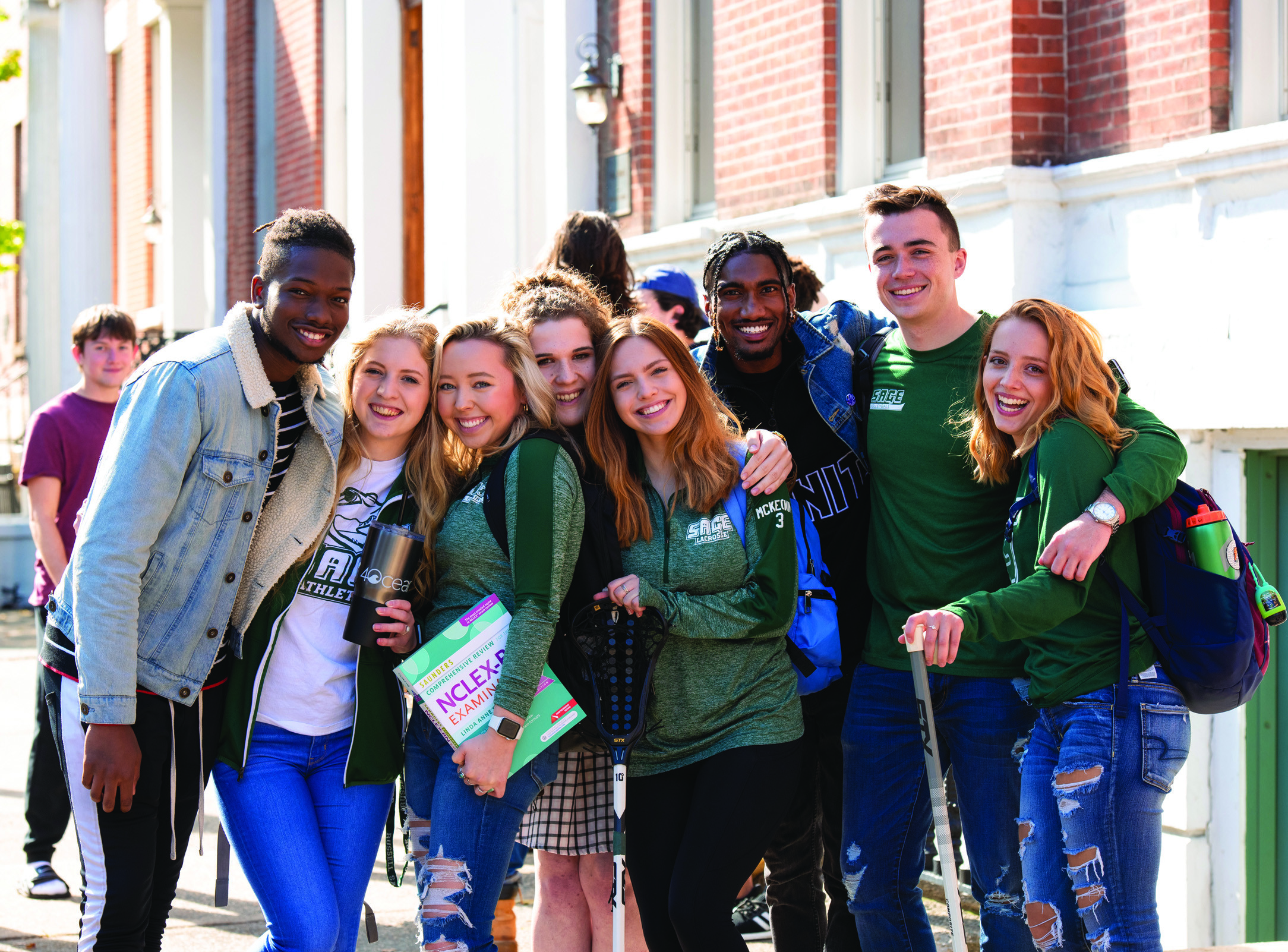Add your ideas to the Suggestion Box
We encourage members of the Russell Sage community to contribute your thoughts, as often as you like, in this Strategic Plan Suggestion Box.
The feedback will be shared with planning groups every week.

Russell Sage College’s Distinctive Values

Strategic Threads
Strategic Planning Process Timeline
- August 2024: Cabinet retreat – draft strategic planning guide initiated
- September 2024: Initial Board of Trustees feedback; Faculty Executive Committee feedback; alumni, faculty, and staff surveys; EAB kickoff
- October 2024: Open forums, inauguration, board planning session
- November 2024-March 2025: Workgroups formed, including representatives from students, faculty, and staff, to gather data, engage stakeholders, and propose strategic goals, action steps, and metrics
- April 2025-May 2025: Refinement of goals, metrics, and stakeholder feedback
- June 2025: Board of Trustees reviews and approves draft
- July 2025-August 2025: Finalize writing and design
- Fall 2025: Strategic plan launch to the community
Committee and Workgroup Information
Defining Our Distinction Steering Committee: An overarching group led by the authors of this email and strategic plan co-chairs, President Matt Shaftel and Provost Theresa Hand, with support from Kirk Robinson, who will take on the role of Strategic Plan Director. This committee, which includes co-chairs of each of the five workgroups, will review the efforts of each workgroup, offering feedback and ideas through a lens of seeking distinct initiatives and noting when workgroups’ ideas intersect to facilitate collaboration.
Five Workgroups: Five workgroups will be formed starting in November. Are you a faculty member, staff member, or student who would like to serve on a workgroup? Please fill out the interest form. Alumnae/i will have an opportunity to provide feedback via talkback sessions, held virtually for each workgroup. Community members/partners will also have an opportunity to provide feedback in at least one talkback session.
The workgroups are:
- Students First
- Fortifying Our Future
- Empowering Our People
- Connecting and Contributing
- Pursuing Operational Excellence

Time commitment: Outside of the kickoff meeting, workgroups are scheduled for a maximum of eight 90-minute Wednesday workgroup meetings from November through April. The meeting times will fall between 10 a.m. and 2 p.m., but the exact times and meeting format (virtual or in person) will be at the discretion of the co-chairs based on workgroup members’ needs. A limited number of additional meetings with stakeholder focus groups may be scheduled at the convenience of the committee members.
Schedule for 5 Workgroups:
- Full Group Kickoff Meeting: November 13, 10 a.m. to 1 p.m.
- Workgroup Session 1: November 20
- Workgroup Session 2: December 4
- Workgroup Session 3: January 22
- Workgroup Session 4: February 5
- Workgroup Session 5: February 26
- Workgroup Session 6: March 5
- Workgroup Session 7: March 26
- Workgroup Session 8: April 9
Schedule for Defining Our Distinction Steering Committee:
- Steering Committee Session 1: November 7, 9 to 11 a.m.
- Full Group Kickoff Meeting: November 13, 10 a.m. to 1 p.m.
- Steering Committee Session 2: December 12, 9 to 11 a.m.
- Steering Committee Session 3: January 30, 9 to 11 a.m.
- Steering Committee Session 4: February 27, 9 to 11 a.m.
- Steering Committee Session 5: April 3, 9 to 11 a.m.
- Steering Committee Session 6: April 10, 9 to 11 a.m.
OUR CURRENT STRATEGIC PLAN
One Sage: A Vision for the Future was launched in 2019.
QUESTIONS?
If you have questions, please email Kirk Robinson, assistant provost for student success and institutional effectiveness, at [email protected].

